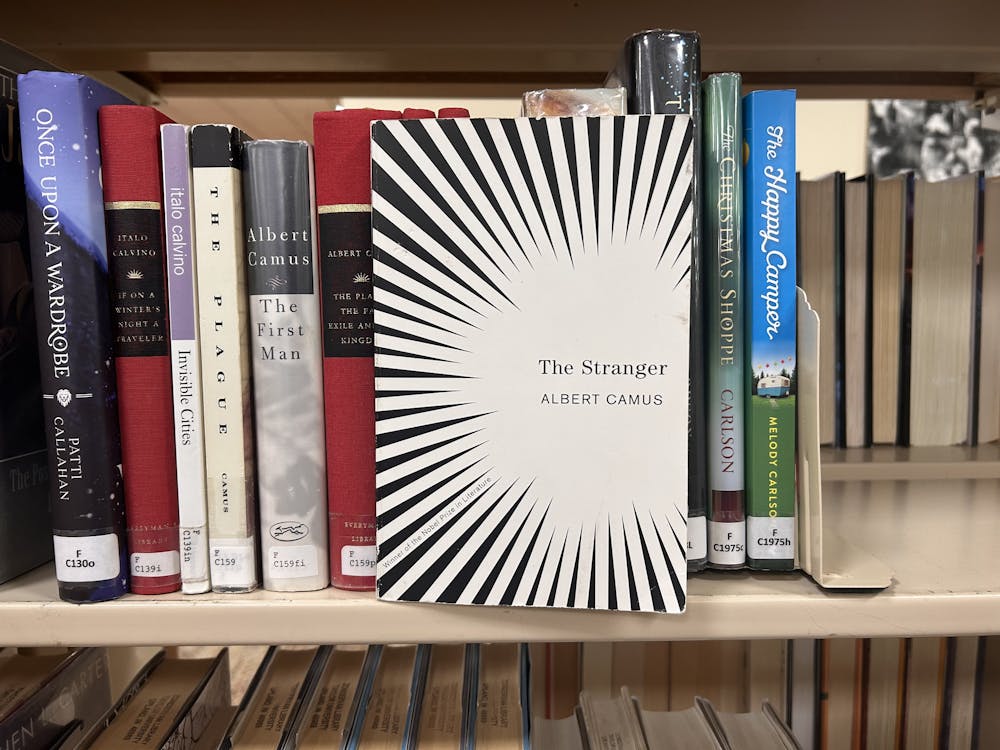“Maman died today.”
This is the opening line of “The Stranger” by Albert Camus, a book about seeking meaning and recognition in an often uncaring world. The novel follows Meursault, a man on a seemingly meaningless journey through a few days of his life, beginning with his mother’s funeral.
Meursault does not cry nor offer any sympathies for his mother’s friends, only viewing the funeral from the stance of a stranger. He watches the service and thinks only of the stifling heat and the coffee he had shared with his mother’s caretaker. This indifference and uncaring exterior are indicative of his character and are present for the entirety of the novel.
Another example of his stoic demeanor is when his lover wants to marry him. He agrees only because it would make her happy. The pair ultimately do not marry, but their love — or rather her love for him and his indifference toward her — remains a constant until the third act.
The novel continued by introducing a new struggle: a group simply called the Arab men are following some friends of Meursault’s. This subplot fades into the background but is reintroduced one day on the beach when Meursault is surrounded by friends and his lover.
Meursault is blinded and irritated by the sun. The sweat running down his face mixed with the sun glinting off of a knife and into his eyes sent him into a blind rage, killing the Arab man opposite him. This action, of course, has consequences which are revealed in the second half of the novel.
He begins by telling the truth to his state-appointed attorney: the sun made him commit the crime. He said he did not mean to kill the man, but felt his rage was an involuntary reaction.
Meursault is thrown into a lengthy trial, he seems to disregard anything but his personal comfort and wellbeing. As any ‘normal’ character would be concerned with how the judge and jury are reacting to the evidence being presented, Meursault is only focused on the stifling heat in the room.
Ultimately, Meursault is sentenced to death, and he refuses to offer any counsel or help in appealing his case, maintaining his stance that nothing matters and that it does not matter if he lives or dies as a result of his crime. Meursault does not even show empathy for his lover or any of his friends.
Because he is the main character of the work, most readers would assume that Meursault would live, but the universe does not care if he is the main character or not, so he ultimately is killed for his crime.
Since the work does not have a theological background, the overarching message of the book is that there is no meaning to life, and that nothing we do matters.
By looking at the world from Meursault’s perspective, readers can find their own meaning in a world where cruel fate often rules.





